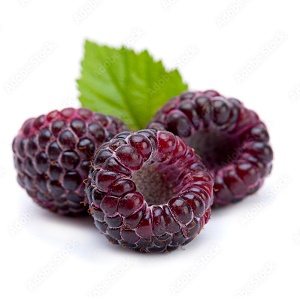Raspberry Purple : AMETHYST 9cm (3¼") pot (Summer Bearing)
$8.95
Amethyst is a rare gem of a raspberry. Developed at the Iowa State University in the late 1960s, it somehow got lost in the shuffle, before being rescued from total oblivion by Jim Walla of North Dakota. Extra large berries with superbly rich and intense flavour are quite firm if picked when purple, and become softer and more juicy if left until nearly black. Amethyst produces heavily for about six weeks in late summer. Besides fresh eating, baking and jam, these berries are reputed to make an exceptional wine. The plants do not sucker, but produce multiple canes in a tight cluster, just like the black raspberries, although the vigorous canes are less thorny than most blacks.
SELF-FERTILE | ZONE 3/4 | HARVEST: LATE JULY-LATE AUG.
Only logged in customers who have purchased this product may leave a review.
Growing Tips
Before leaving the raspberries behind, let's briefly focus on their leaves. They are such a powerful tonic, you should grow some canes for this reason alone. Tea made with raspberry leaves (fresh or dried) is a potent elixir for all sorts of ailments. Do a bit of research or ask any qualified herbalist.
Tipping or tip pruning is highly recommended for black and purple raspberry canes. As the primocanes (first year canes) reach 90-120 cm (3-4'), pinch or cut 8-15 cm (3-6”) off the tips to force branches to develop. Tipping will delay, but prolong, the harvest, increase yield and reduce arching of the canes and tip rooting. Pruning later in the season decreases the amount of time the plant will have to develop the branches. Not pruning the primocanes will allow earlier ripening than the tip-pruning option, however the
canes will become tall and arching, and will develop fewer berries.
Raspberry canes MUST be kept moist until they are in the ground. In fact, we believe that the main reason that canes fail to grow is from the root hairs becoming dry at some point in the planting process.
We suggest using Soil Moist root dip (see page 81). Soak the roots for 1-2 hours just before planting. From our own experience it is highly effective. It is also recommended for other plants – blackberries, strawberries, etc.

Reviews
There are no reviews yet.